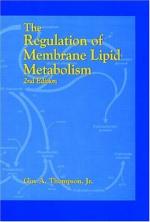|
This section contains 1,507 words (approx. 6 pages at 300 words per page) |

|
Lipids are a group of organic compounds characterized by their presence in plants and animals, and their insolubility in water. They are extracted from cells using solvents such as ether or benzene that are non-polar. They are composed of mainly hydrogen and carbon and include materials such as fats, phospholipids, steroids, and waxes. Lipids have important functions in the body, being involved in such activities as energy storage and generation, the construction of cell membranes, and systemic chemical signaling. They also have a protective function in nature.
The most common type of lipids are fats. Fats are large molecules composed of two smaller types of molecules, fatty acids and glycerol. Glycerol is a polyhydroxy alcohol containing three carbon atoms and three hydroxyl groups. Fatty acids can be thought of as having two ends. One end is the "head" which contains a carboxylic acid group (COOH). The other end...
|
This section contains 1,507 words (approx. 6 pages at 300 words per page) |

|


